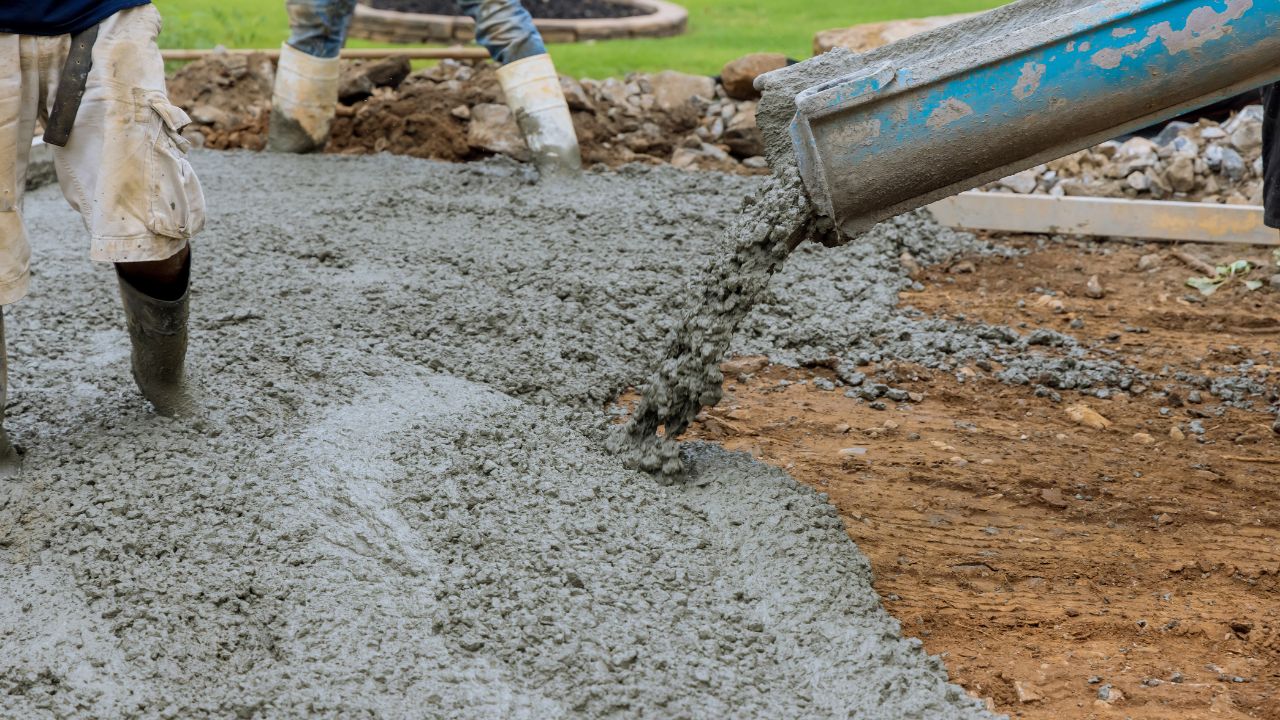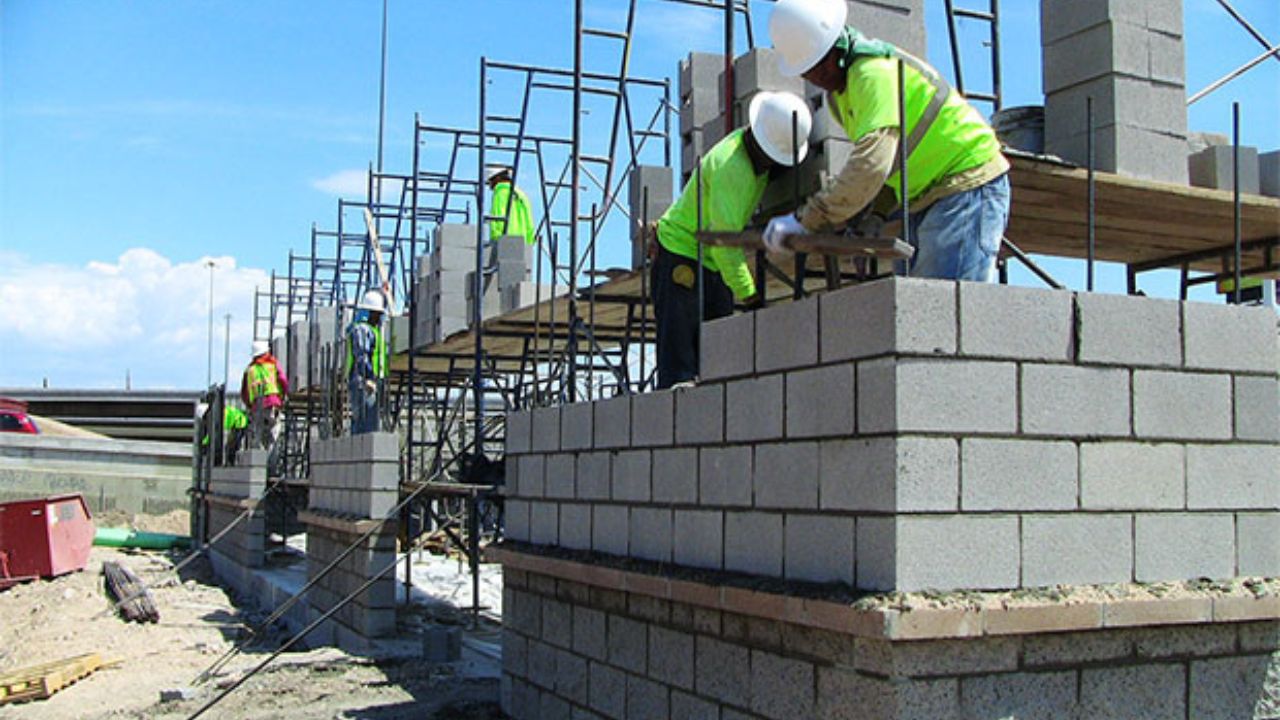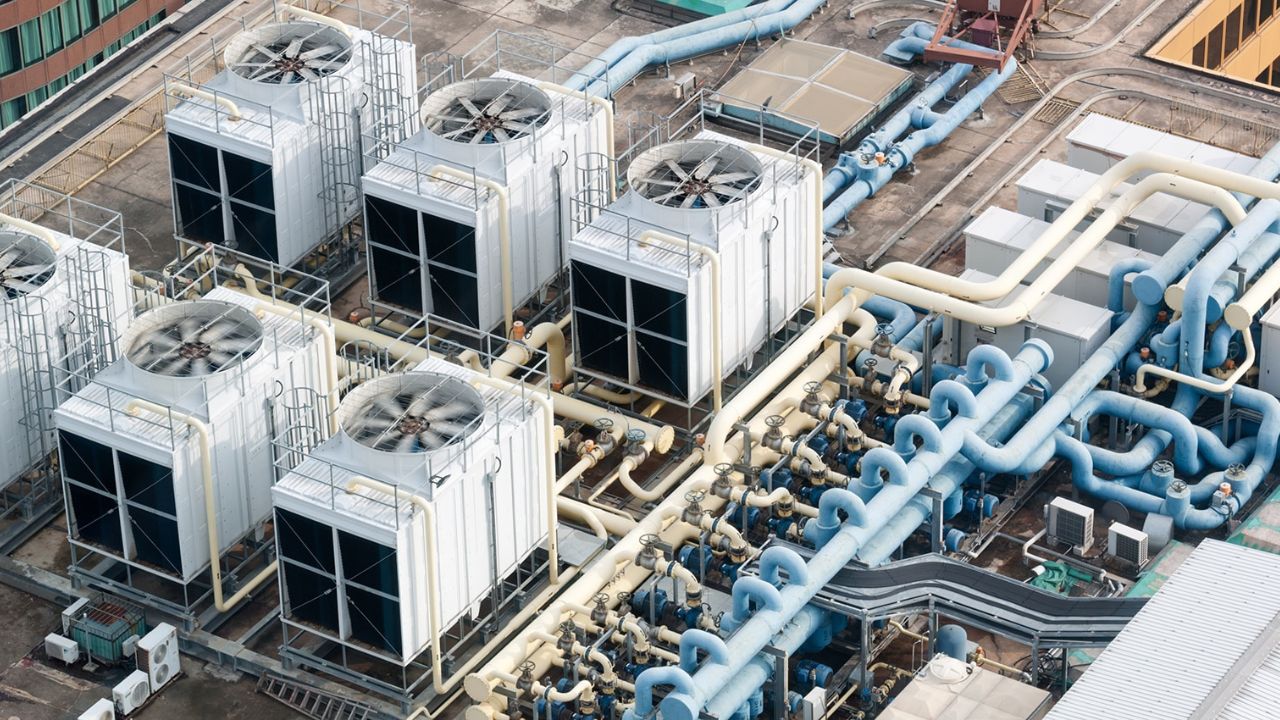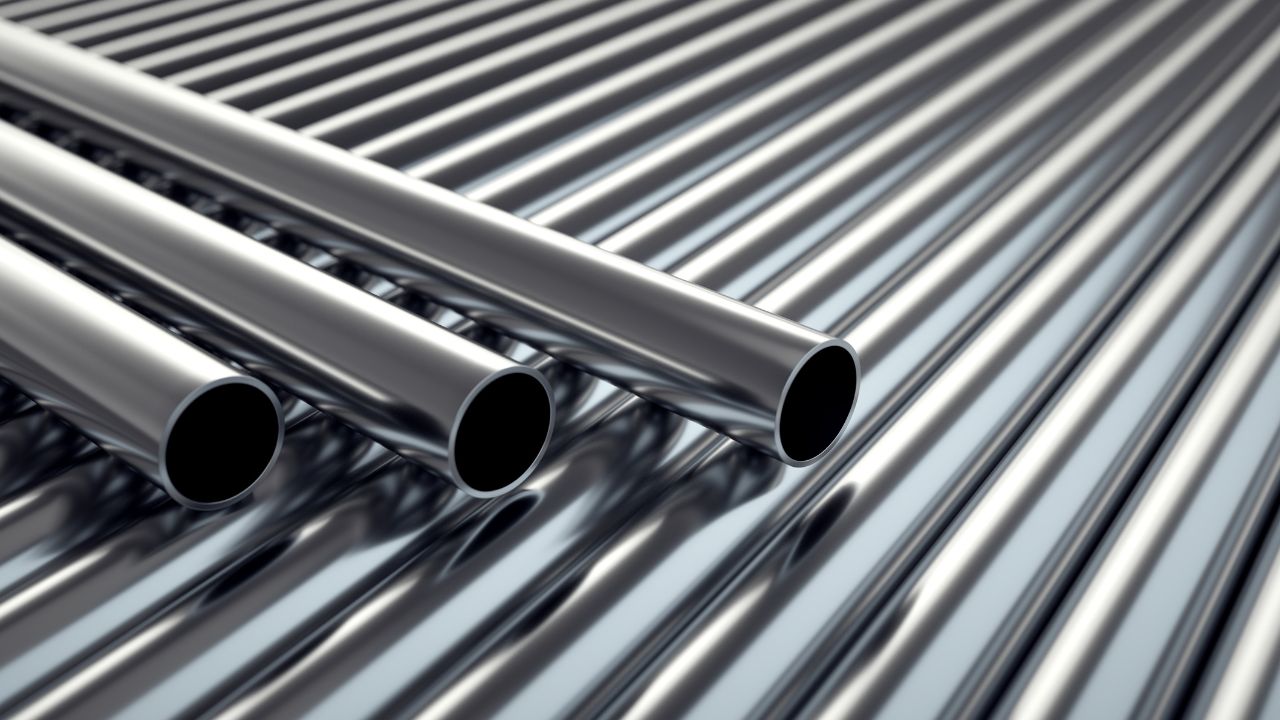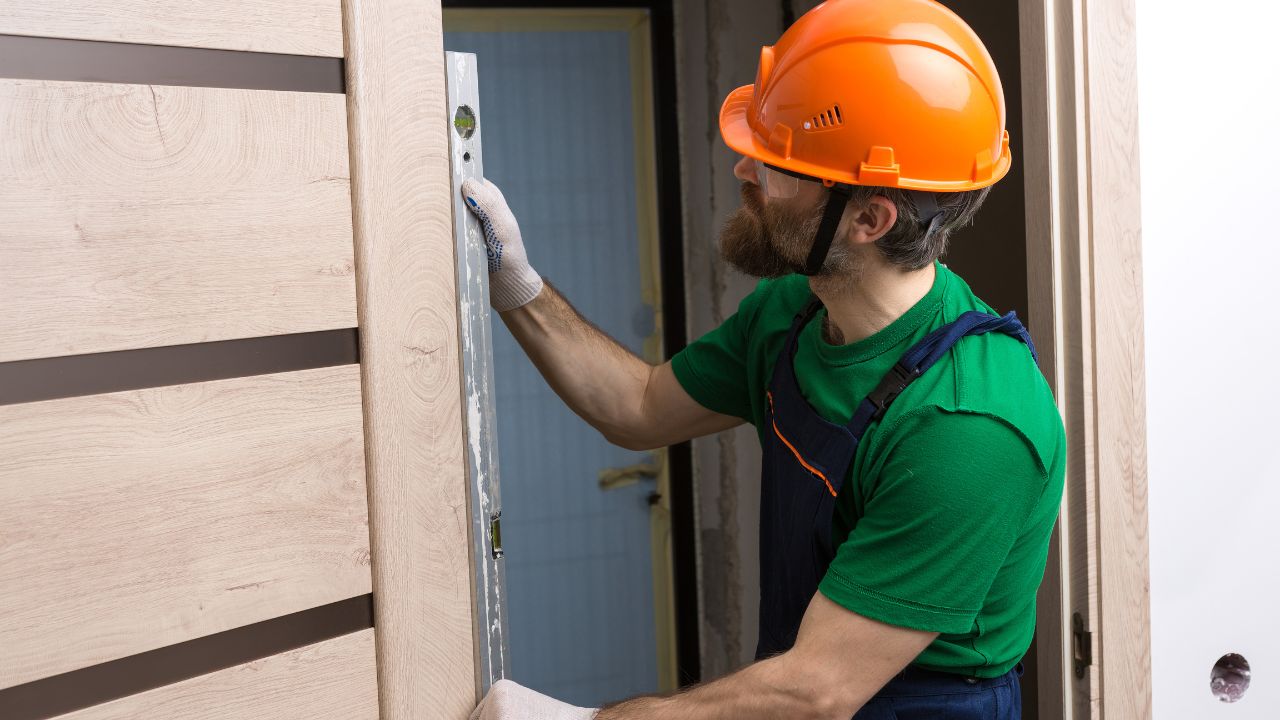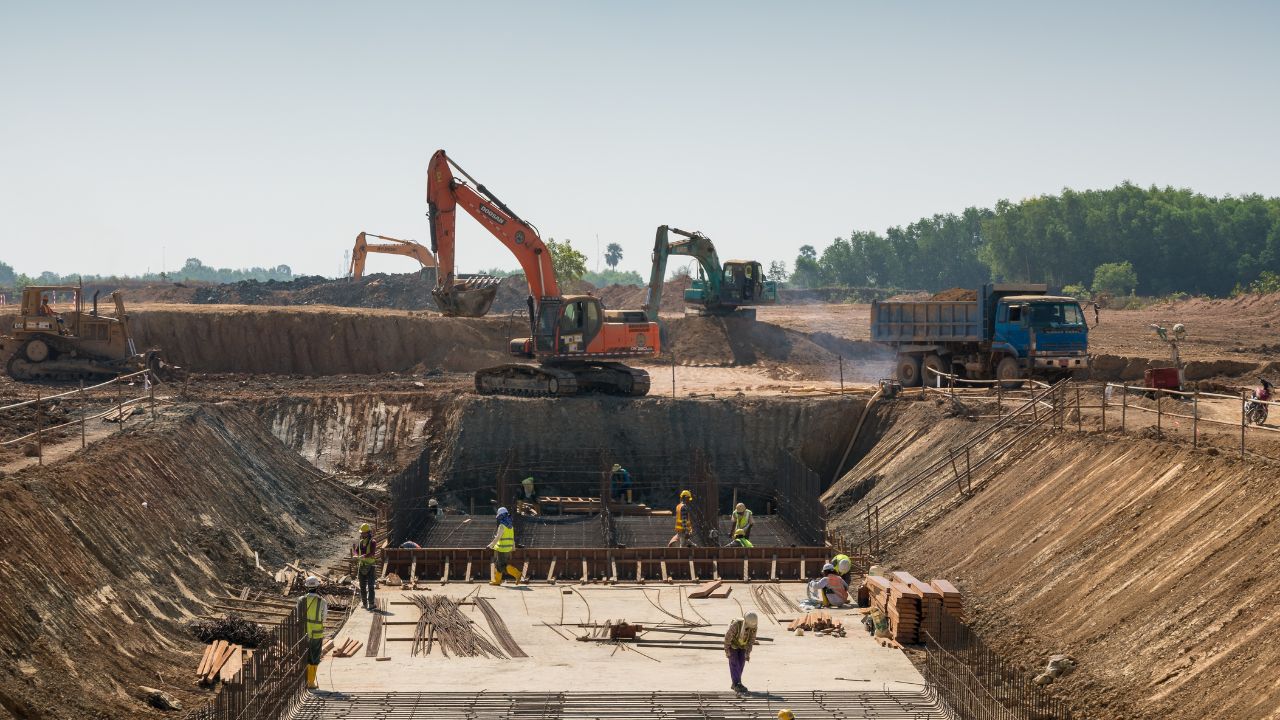- Homepage
- HVAC System
Choosing the Right HVAC System for Your Home A Comprehensive Buyers Guide
Leading provider of hvac system estimating services
Understanding HVAC Systems
A sound knowledge of heating, ventilation and air conditioning systems is essential for choosing the right one for your home. HVAC systems combine these three functions in one unit and cater to different heating and cooling needs of a house. Understanding HVAC systems’ features, types, sizes, efficiency ratings, installation costs, operating expenses are crucial in deciding which system will provide you with long-lasting comfort and efficiency.
Frequently used terms in HVAC technology include BTU (British Thermal Units), SEER (Seasonal Energy Efficiency Ratio), HSPF (Heating Season Performance Factor), AFUE (Annual Fuel Utilization Efficiency) etc. A lower SEER rating means lower energy efficiency while a higher AFUE rating means more efficient furnaces.
Factors to consider before buying an HVAC system includes the size of your home, its insulation levels, number of rooms, ductwork design if any and desired maintenance level. Get a professional to perform a load calculation so that they may suggest an adequately sized system that will keep the indoor temperature comfortable while also lowering energy consumption.
One family invested in an oversized heating unit that caused excessive heat in their house. The overuse led to wasted electricity bills causing dissatisfaction with their investment’s value. It emphasizes the importance of getting an accurate assessment by professionals before purchasing an ill-fitting HVAC unit.
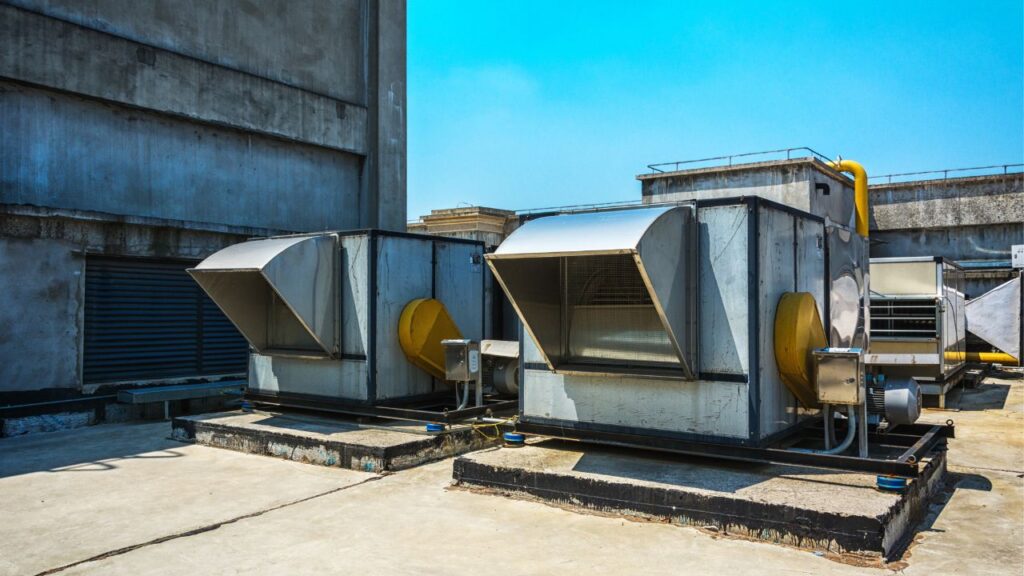
Choosing the right HVAC system is like choosing a life partner, you want one that won’t give you the cold shoulder or leave you sweating all night. After choosing the right HVAC system, estimate HVAC system costs to budget for your home’s installation or replacement.
Types of HVAC Systems
Different Varieties of HVAC Systems
There are several varieties of HVAC systems available in the market that homeowners can choose from. Each variety has its unique features and functions, making them suitable for different types of homes and climates.
Understanding the Types of HVAC Systems
HVAC systems can be broadly classified into four main types: Split, Hybrid, Packaged, and Ductless. Each type has different components, installation requirements, and maintenance needs. Refer to the table below for a summary of their features.
Type of HVAC System | Features | Suitable For |
|---|---|---|
Split | Separated into two units: indoor and outdoor | Larger homes and commercial buildings |
Hybrid | Combines a gas furnace with an electric heat pump | Colder climates |
Packaged | Compact and self-contained unit installed outside | Smaller homes and limited outdoor space |
Ductless | No ductwork required, units mounted on walls or ceilings | Retrofitting older homes and room-by-room temperature control |
More About HVAC Systems
Apart from the four main types of HVAC systems, homeowners can also opt for other options like geothermal, radiant heating, and zone systems. However, these systems are more complex, expensive, and require specialized installation and maintenance. Homeowners should consult with HVAC professionals to determine the best system for their specific needs.
Don't Compromise on Comfort, Act Now!
Choosing the right HVAC system is crucial for maintaining a comfortable and energy-efficient home. Don’t miss out on the benefits of a high-quality HVAC system, and act now to schedule an appointment with a certified HVAC professional. Your home and family deserve the best.
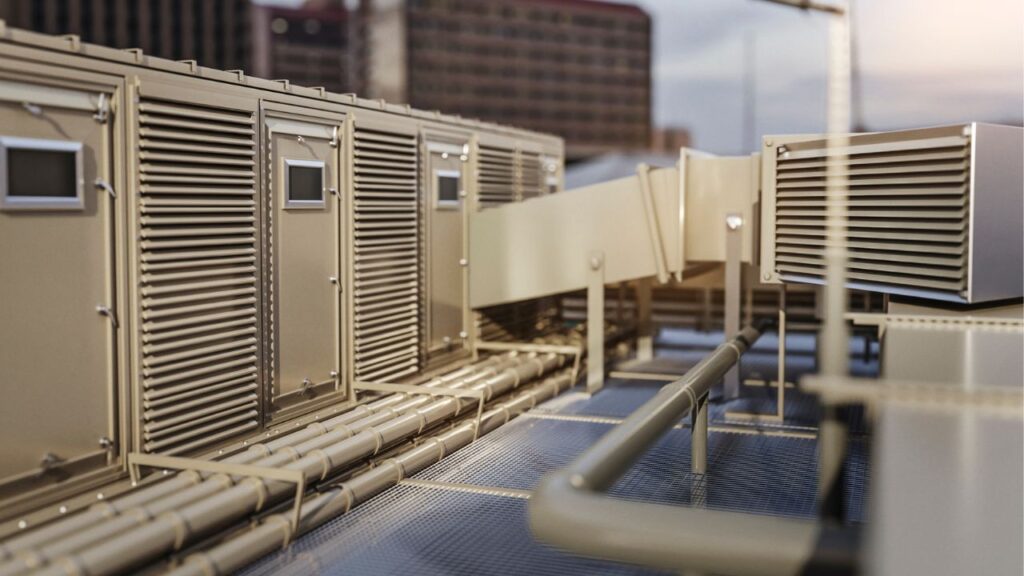
Your relationship with your HVAC system should be like a good split: efficient, reliable, and not too clingy.
Split System
A commonly used type of HVAC system is a Split AC System. It consists of two components – indoor unit and outdoor unit. The indoor unit contains the evaporator coil, blower, and air filter whereas the outdoor unit houses the compressor and condenser coil. Refrigerant gas circulates between them to provide cooling.
Component | Description |
Indoor Unit | Contains evaporator coil, blower, air filter |
Outdoor Unit | Houses compressor and condenser coil. |
Split systems are typically used in residential and small commercial buildings since they are easy to install and maintain. They also offer individual temperature control in each room or zone.
It’s essential to choose the right size of split system based on building size and usage patterns to ensure optimal energy efficiency.
According to a report by Market Insights Reports, “The global Split Air Conditioning market size was valued at USD XX billion in 2019, and it is expected to reach USD XX billion by the end of 2026.”
If you’re tired of your HVAC ducts dictating your decor choices, try a ductless system and let your walls be your canvas.
Get 5 New Projects in the Next 7 Days With Our System
Ductless System
A cooling and heating system that operates without ducts, a Ductless HVAC System is a popular alternative to traditional HVAC systems.
Column 1 | Column 2 | Column 3 |
|---|---|---|
Detailed Explanation | Potential Savings on Energy Bills | No Ductwork Needed |
Compact Design for Easy Installation | Individual Temperature Control in Each Room | Indoor and Outdoor Units Available |
Considering the convenience of installation, compact design, cost-savings capability and room-to-room individual temperature control, a Ductless HVAC System is an attractive option for residential or commercial buildings.
Pro tip: Regular cleaning of indoor units can ensure more efficient functionality.
If you’re looking for an all-in-one HVAC system that doesn’t require a degree in engineering to operate, the packaged system is for you.
Packaged System
A bundled air conditioning system combines all the components of a central air conditioning system into one unit. This type of system is common in homes and small businesses that don’t have the space for separate units.
Installed outside a building or on its roof, packaged systems are easily accessible from ground level, making maintenance and repair simple. The table below shows some unique characteristics.
Feature | Description |
|---|---|
Type of AC | Central |
Location | Outside |
Components | Compressor, Condenser coil, Evaporator coil, Air handler |
Airflow | Ductwork |
Efficiency rating | High |
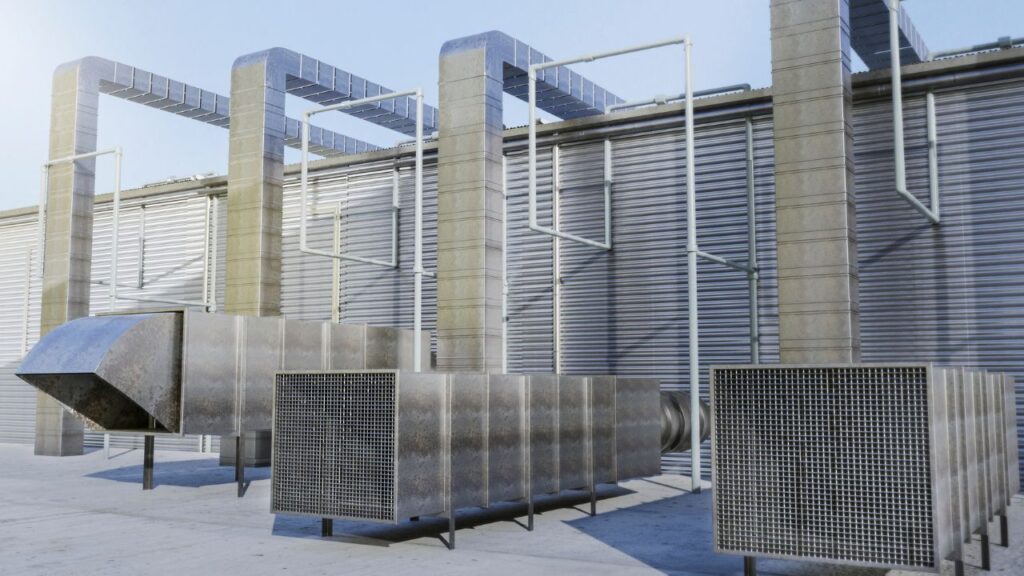
Additionally, a packaged air conditioning system is efficient and easy to install because it’s preassembled at the factory. But it comes with a disadvantage – it’s not customizable as you cannot choose different components.
One suggestion to consider when buying a bundled air conditioning system is to find an expert contractor familiar with installed ACs; they can guide you through the process of selecting, installing and maintaining the best unit for your space. Another recommendation is to ensure your unit’s efficiency rating meets or exceeds current industry standards; this will help save energy costs over time.
Choosing the wrong HVAC system is like wearing wool in July – uncomfortable and regrettable.
Factors to Consider When Choosing an HVAC System
HVAC System Considerations: A Comprehensive Guide
Choosing the right HVAC system for your home requires careful consideration of several factors. These include the size of your home, your budget, and the efficiency rating of the unit. It’s important to choose a system that will provide optimal comfort while also being cost-effective.
To help you make an informed decision, we have created a table outlining the key factors to consider when choosing an HVAC system. This includes the type of system, the size required, the efficiency rating, and the cost.
| Type of System | Size | Efficiency | Cost |
| Central Air | Based on Home Size | SEER Rating | $3,000-$7,500 |
| Ductless Mini-Split | Based on Home Size and Room Layout | SEER Rating | $1,500-$4,000 per Unit |
| Heat Pump | Based on Home Size | SEER and HSPF Ratings | $5,000-$8,000 |
| Furnace | Based on Fuel Type and Home Size | AFUE Rating | $2,500-$7,500 |
| Boiler | Based on Fuel Type and Home Size | AFUE Rating | $3,500-$8,000 |
It’s important to note that the size of your HVAC system should be based on the size of your home and not just the square footage. Other factors like the number of windows, insulation, and room layout should also be considered.
In addition to the factors listed in the table, it’s important to consider the level of maintenance required for each type of system. Some systems may require more frequent maintenance than others, which can impact long-term costs.
When looking for an HVAC system, it’s always a good idea to do your research and read reviews from other homeowners. One true story to consider is that of a family who opted for a ductless mini-split system in their home. They found that this system was not only energy-efficient but also provided them with more control over the temperature in each room. It was also more affordable to install compared to other systems and required minimal maintenance.
Don’t go big or go home when it comes to HVAC systems – choose the right size and capacity for your home or risk turning it into a sauna or igloo.
Professional Contractor For Your Project?
Size and Capacity
For an HVAC system, the proper sizing and capacity play a vital role. The optimal capacity and size of the HVAC system will ensure energy efficiency and cost-effectiveness.
Creating a table is an excellent way to show the proper sizing and capacity required for an HVAC system. The table should include data based on the building’s square footage, number of rooms, occupants, and other relevant factors. It will help determining the appropriate tonnage required to maintain optimal temperature levels.
An important consideration for optimal performance is that a smaller-sized unit may result in wear-and-tear over time, whereas purchasing a larger unit than needed can lead to excess energy consumption.
The Department of Energy states that any oversized or undersized unit can cause inefficiencies in operations, possibly resulting in premature equipment failure or unsatisfactory thermal comfort for building occupants.
It’s crucial to establish correct sizing and appropriate capacity prior to installation by engaging with experienced professionals who can provide detailed calculations based on all the necessary factors.
In fact, according to Energy Star, nearly half of all new HVAC systems purchased in the USA are installed with problems related to improper sizing or installation.
Choosing an inefficient HVAC system is like buying a car with terrible gas mileage – you’ll be paying for it in the long run.
Efficiency Ratings
For the HVAC system, assessing its ability to use energy wisely is crucial. One of the aspects to consider is its “Energy Efficiency Ratings.” It shows how efficient the system is in converting energy into heat or air conditioning.
The following table demonstrates the impact of various efficiency levels on your electricity bill. The result shows that choosing an HVAC system with a higher energy efficiency rating can result in significant electric bill savings.
Energy Efficiency Rating | Annual Electricity Cost |
|---|---|
14 | $1,700 |
16 | $1,500 |
18 | $1,300 |
It’s necessary to grasp that systems with higher ratings are more expensive upfront but have lower operating costs in the long run than those with lower ratings. It’s important to consider this upfront expense versus long-term cost-saving when selecting an HVAC system for your business or home.
According to Energy Star, a government-backed program that assists owners in saving energy and cash, implementing an HVAC system with high-efficiency ratings could help businesses save up to 30% on their annual energy bills.
In reality, investing in a high-efficiency heating and cooling system provides substantial long-term benefits by conserving money on monthly electric bills while keeping buildings more comfortable year-round.
Choose your HVAC wisely, because buying a cheap system now will only result in a costly relationship later on.
Cost
When it comes to the financial aspect of selecting an HVAC system, there are several factors to keep in mind. Here are some key considerations:
- Total Cost: This includes both the purchase price and installation costs.
- Operating Costs: Look at the energy efficiency rating (EER) or seasonal energy efficiency ratio (SEER) of the system. The higher the rating, the lower the operating costs will be.
- Maintenance Costs: Consider how much maintenance and repairs will cost throughout the lifetime of the system.
- Potential Savings: Some systems may offer rebates or tax credits that can offset initial costs.
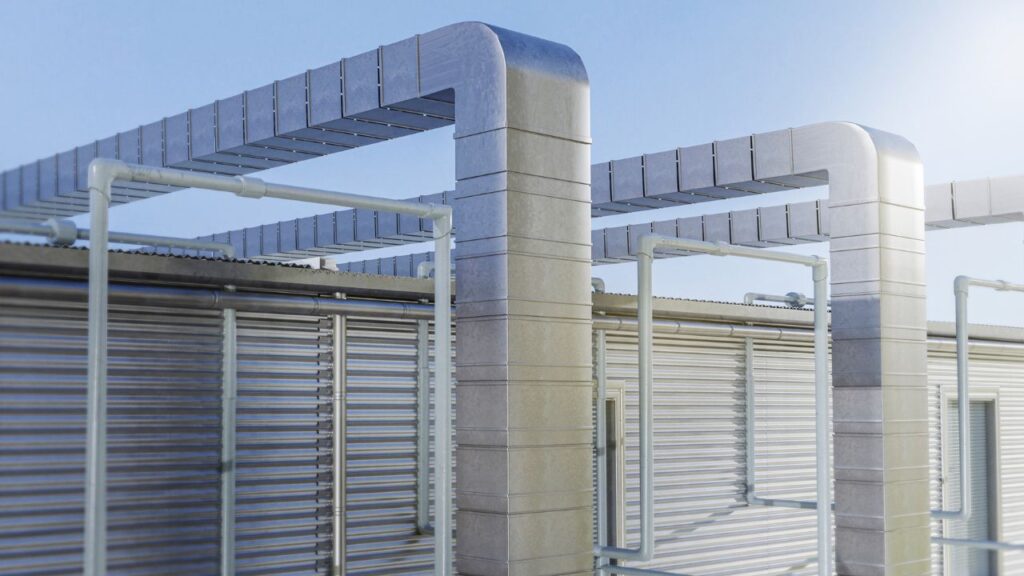
It’s also important to note that a lower upfront cost doesn’t necessarily mean overall savings. Investing in a more efficient system may lead to long-term cost savings.
When choosing an HVAC system based on cost, it’s crucial to assess all expenses involved and weigh potential savings in the long run.
In addition, it’s worth considering whether local utility companies offer incentives or special financing options for energy-efficient systems.
A case from 2014 highlights how saving money on upfront costs can end up being more expensive in the long run. A school district opted for a cheaper HVAC system, but experienced numerous breakdowns and needed costly repairs over time. By investing in a higher-quality system upfront, they could have avoided these ongoing expenses.
Maintaining your HVAC system is like taking care of a high-maintenance girlfriend: you need to give it attention regularly or it’ll start acting up.
Maintenance Requirements
Regular Check-Ups for HVAC System Maintenance
Regular check-ups and maintenance play a critical role in determining the lifespan of an HVAC system. It is crucial to schedule inspections regularly with a professional technician to ensure smooth operation. Neglecting regular maintenance adversely affects the efficiency of the system and may lead to frequent breakdowns, resulting in increased operating costs.
Adequate Maintenance Techniques for HVAC Systems
To improve the longevity of the HVAC system, users must take some maintenance techniques seriously. To begin with, check and clean air filters frequently, especially during peak usage months. Ensure all outdoor units are positioned correctly and clear obstructions such as leaves or debris from around them. Installing programmable thermostats can reduce wear on systems by scheduling long hours of avoidable usage. Always ensure that any part needing repair or replacement is done promptly.
Cost-Efficient Solutions for HVAC Maintenance
Investing in preventative measures is a cost-efficient solution when it comes to maintaining your HVAC unit. A few best practices include regular inspections, efficient filter cleaning schedules, and prompt repairs when needed. Additionally, investing in high-quality equipment ensures durability while offering excellent returns on investment. With proper upkeep practices put in place, you not only save big on operating costs but also get to enjoy an extended lifespan for your system.
Overall, maintaining an HVAC system calls for efforts beyond routine cleaning or simple inspections; it requires a holistic approach aimed at addressing all technical aspects of its operation. Regular preventive maintenance guarantees reduced energy bills and fewer repairs for greater cost savings over time.
Upgrade your HVAC system to include additional features and turn your home into a winter wonderland or a summer oasis, depending on your mood and the season.
Get High-Quality 3D Rendering Today!
Transform your space with stunning 3D rendering that blends style, comfort, and functionality.
We Specialize in Both Residential and Commercial 3D Rendering Projects.
- Luxury Villas
- Apartment Complexes
- Condominiums
- Schools
- Office Buildings
- Shopping Malls
- Hospitals
- Hotels & Resorts
Additional Features
An HVAC system selection has many factors to consider, including additional capabilities. Here are some things to think about when selecting an advanced HVAC system:
- Intelligent Thermostats: A smart thermostat enables wireless and remote access to HVAC controls.
- Zoning: This feature creates different temperature zones in a building using multiple thermostats.
- Energy Efficiency Ratings: Higher SEER ratings translate into lower energy bills and greater savings.
- Air Filters: Choose high-efficiency air filters that prevent small particles from circulating through the HVAC system.
- Humidity Control: Adding humidity control can help remove excess air moisture creating more comfortable indoor air quality.
One aspect not mentioned earlier is programmable automation systems. These systems have preset operating settings, making them easier to monitor and control via smartphone or computer devices from anywhere in an office or home.
Recently, one business owner switched to an advanced HVAC model with built-in sensors for detecting changes in the outdoor environment and controlling the indoor climate accordingly. The owner was pleased with the efficiency gains and more comfortable working conditions.
If you want to keep your home comfortable, don’t be an airhead when it comes to choosing the right HVAC system.
Choosing the Right HVAC System for Your Home
Finding the Perfect HVAC System for Your Home
Your home’s HVAC system plays a crucial role in maintaining a comfortable environment. It is imperative to select an appropriate HVAC system that meets your requirements. Here’s what you should consider before making a choice.
Factors to Consider When Choosing Your HVAC System
Consider the size of your home, the climate, and your budget when choosing an HVAC system. Compare the pros and cons of different types of systems, such as central heating and cooling systems, heat pumps, and ductless mini-split systems, before making a final decision.
A Comparison of Popular HVAC Systems
HVAC System Type | Pros | Cons |
|---|---|---|
Central Heating and Cooling System | – Efficient | – Costly to install |
Heat Pumps | – Versatile | – May not be suitable for areas with extremely cold temperatures |
Ductless Mini-Split Systems | – Highly efficient | – Expensive upfront costs |
Additional Considerations for Your HVAC System
Apart from the primary considerations, you should also think about the warranty and customer support provided by the manufacturer. Prioritize a company that offers quality support and an extended warranty period. Consider the long-term expenses, energy efficiency ratings, and maintenance requirements of each system.
Pro Tip for Choosing Your HVAC System
Pro Tip: Ensure that you get your HVAC system inspected and maintained regularly to avoid any unexpected expenses and disruptions in your system’s performance.
Choosing the right HVAC system is like choosing a life partner – it’s a long-term commitment, requires research, and can be expensive, but the right one will keep you comfortable and happy for years to come.
Get Financing For Electrical Construction Business
Maximize your Electrical construction business’s potential with our competitive financing options

Steps to Follow When Choosing an HVAC System
When selecting the most suitable HVAC system for your home, there are some crucial steps that you need to follow. Here’s how you can choose the right HVAC system for your home.
- Start with a professional assessment by an experienced HVAC contractor, who will evaluate your home’s size and energy efficiency needs.
- Take into consideration your preferences regarding features such as energy-efficiency rating, zoning capabilities, and air quality improvements.
- Check if the system is appropriately sized for optimum performance and longevity of equipment.
- Determine the cost of installation and long-term maintenance expenses compared to potential savings on monthly utility bills.
- Study manufacturer warranties, maintenance agreements, and repair guarantee policy coverage before making a final decision.
- Hire expert HVAC technicians or service providers to carry out installation, preventive maintenance checkups, and repairs as required.
Besides adhering to these guidelines, remember that purchasing an appropriate HVAC system needs considerable investment in time, research and financial resources. The most significant expense often comes from financing the unit. In contrast, routine service requirements over time might add up equally. Therefore, select wisely.
For those worried about skyrocketing energy costs or looking to reduce their ecological impact through increased power efficiency at home- a sustainable geo-exchange heating and cooling solution might be worth considering with incredible benefits ranging from rebates/credits programs available from communities across many regions worldwide.
A homeowner in Utah was in a similar situation when they decided it was time for an HVAC upgrade; instead of going for traditional systems commonly used by their neighbors; they chose renewable energy geothermal options resulting in extraordinary savings.
Why settle for just heating or cooling when you can have both? Determine your needs and get an HVAC system that’s a real overachiever.
Determine Your Heating and Cooling Needs
In order to select the most appropriate HVAC system for your home, it is crucial to identify your heating and cooling needs. This can be done by following a structured approach that takes into account various factors such as the size of the house, local climate, and preferred temperature settings. Here are six steps to help you determine your heating and cooling needs:
- Calculate the total square footage of your home.
- Determine how many rooms need to be heated and cooled separately.
- Consider insulation levels in walls, attics, and basements.
- Assess the number and size of windows in each room.
- Evaluate any existing ductwork or ventilation systems.
- Analyze your family’s daily routine and temperature preferences.
It’s important to remember that determining your heating and cooling needs involves more than just guessing which HVAC system will work best. It requires a comprehensive assessment of multiple factors with keen attention to detail. By going through this process, you can ensure that you are selecting an HVAC system that is capable of efficiently providing the level of comfort required within your budget.
Apart from these steps, consider hiring a professional to measure Your ducts’ airflow rate. Health hazards like allergies associated with poor air quality could harm productivity at home or office.
Recently, one homeowner identified needing an entirely new HVAC system after experiencing repeated malfunctions in their current unit. Though it was costly, they ultimately chose a more energy-efficient model that has significantly reduced their monthly utility bills.
Choosing the right HVAC system is all about balancing comfort and cash flow – it’s like finding the Goldilocks of air conditioning.
Consider Your Budget
When choosing an HVAC system, it is important to keep your budget in mind. Here’s how you can consider your finances without compromising on comfort and quality.
- Look for Energy Efficient Options – Opt for HVAC systems that offer high energy efficiency ratings, as they can save you money in the long run.
- Think Long Term – While more affordable options may seem tempting at first, investing in a top-quality system may save you money on repairs and replacements.
- Analyze Your Needs – Consider what size, features, and functions your household requires before settling on a system.
A unique factor to keep in mind is the availability of rebates and incentives from government or manufacturer programs to help offset initial installation costs.
True Fact: According to the U.S. Department of Energy, heating and cooling account for about 48% of energy use in homes.
Size does matter when it comes to your HVAC system – too small and it’ll struggle to keep up, too big and your wallet will be doing the heavy lifting.
Choose the Right Size and Capacity
Choosing the appropriate HVAC system for your home is crucial to ensure optimal indoor comfort. It involves several factors, and selecting the right size and capacity is one of them. Here’s what you need to know:
- Measure your home’s square footage accurately to determine the unit’s required cooling and heating capacity.
- Consider other factors such as insulation, orientation, and climate zone to determine the appropriate capacity needed.
- Oversized or undersized units may lead to inefficiencies in performance, higher energy bills, and equipment failures.
- Consult with a certified HVAC professional who can perform a load calculation based on various factors unique to your home.
- Ensure that the chosen unit has an Energy Star rating that meets your local regulations for energy-efficiency.
- Keep in mind that investing in a high-quality system upfront may save you money in the long run.
It is essential to choose the right size and capacity for your HVAC system. A wrong decision can affect not only your comfort but also your finances. Therefore, always seek expert advice when making crucial HVAC-related decisions.
A true history illuminates that improper sizing was one of the principal causes of HVAC failure. Improperly sized units caused decreased efficiency and increased repair costs, leading to equipment replacement – costing homeowners thousands of dollars in just a few years.
Make your HVAC system work harder than your ex trying to win you back – check those efficiency ratings.
Check the Efficiency Ratings
Efficiency of the HVAC system is a crucial factor to consider when choosing one for your home. It directly impacts your energy bills and the environment. Here’s a guide to help you check the efficiency ratings:
- Look for SEER rating: SEER stands for Seasonal Energy Efficiency Ratio, which measures cooling efficiency. A higher SEER rating means better efficiency. Experts recommend getting an HVAC system with at least a 14 SEER rating.
- Check AFUE rating: AFUE stands for Annual Fuel Utilization Efficiency, which measures heating efficiency. A higher AFUE rating means better efficiency. Efficient systems have a 90% or higher AFUE rating.
- Consider Energy Star certified systems: An Energy Star certified system has met government standards for efficiency and performance. These systems can save you up to 20% on energy bills compared to non-certified models.
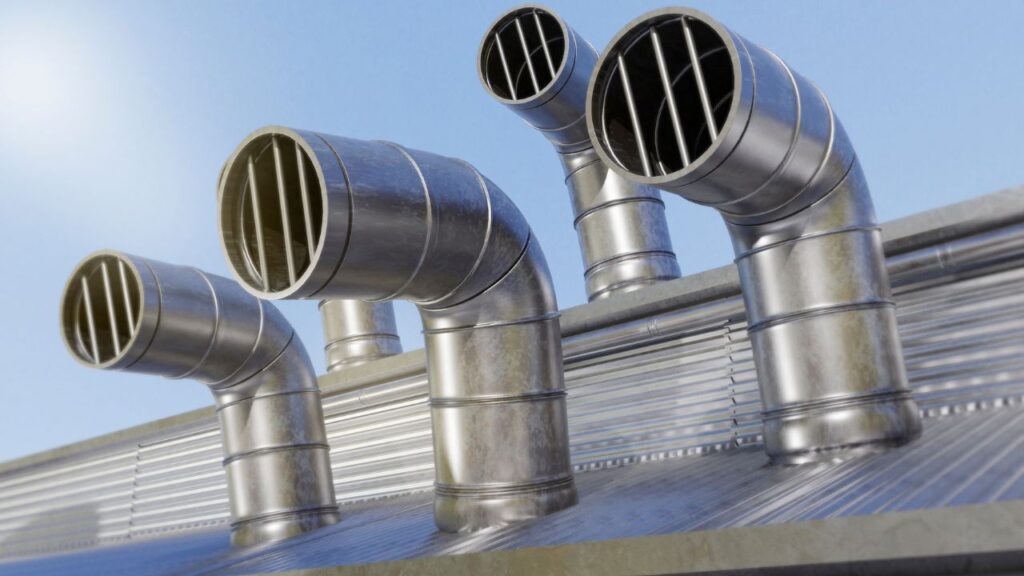
It’s important to note that these ratings apply to new HVAC systems only and not older ones. Also, proper installation and maintenance play a significant role in ensuring optimal efficiency.
Choosing an inefficient HVAC system can cost you hundreds of dollars in energy bills annually and negatively impact the environment due to increased carbon emissions. Therefore, it’s essential to make an informed decision when selecting an HVAC system for your home.
Don’t miss out on the opportunity to save money and contribute positively to the environment by choosing an efficient HVAC system with high SEER and AFUE ratings or an Energy Star certified model.
Choosing an HVAC system can be expensive, but not as expensive as trying to DIY your own air conditioning with a block of ice and a fan.
Compare Costs
Considering Expenses:
One of the crucial considerations while choosing an HVAC system for your home is to compare the costs involved. It is essential to determine the expenses associated with different systems and their maintenance before finalizing a purchase decision.
To help you make an informed decision about costs, we have prepared a table with relevant columns that cover aspects such as initial installation costs, operational cost, energy efficiency, and maintenance costs. The detailed analysis can assist in evaluating different options meticulously.
(Table)
Apart from the above-discussed factors, it is also crucial to understand that purchasing a high rated or expensive HVAC system does not guarantee peak performance. Many other variable factors like ductwork installation and system size impact its efficiency. Therefore, conducting these analyses before investing in an HVAC system ensures long-term benefits and minimal avoidable expenses.
With many options available in the market today, it’s natural to feel overwhelmed and struggle with making the right choice. Yet, failing to invest in a suitable HVAC system may leave you struggling with inadequate heating or cooling effects or spending more on frequent repairs. Henceforth, consider comparing all major factors discussed above before making any purchase decisions.
Keeping up with HVAC maintenance is like going to the dentist – annoying, but necessary for long-term health.
90% More Chances to Win Small Space Closet Bids with
Our Estimate!
Consider Maintenance Requirements
Having an HVAC system that requires regular maintenance ensures its longevity. Neglecting maintenance can lead to system failure or inefficiency, resulting in costly repairs or replacements.
To understand the maintenance requirements of different HVAC systems, refer to the following table:
HVAC System | Recommended Maintenance |
|---|---|
Gas Furnace | Annual inspection and cleaning by a professional |
Electric Furnace | Replace air filter every 3 months |
Heat Pump | Outdoor unit cleaned twice a year and indoor unit inspected annually |
Air Conditioner | Clean air filters once a month, have coils cleaned annually |
It’s important to note that the recommended maintenance may vary based on the brand and model. Be sure to check your manufacturer’s recommendations.
When considering maintenance requirements for your HVAC system, keep in mind that neglecting maintenance can not only lead to costly repairs but also impact indoor air quality. A poorly maintained system can circulate dust, mold, and bacteria throughout your home.
Pro Tip: Scheduling regular preventive maintenance with a professional can help keep your HVAC system in top condition, save on energy bills, and increase its lifespan.
Choosing an HVAC system with extra features is like ordering a pizza with extra toppings – it may cost more, but it’s totally worth it.
Look for Additional Features
Additional Features that Enhance Your HVAC System Efficiency
Selecting an optimal HVAC system won’t be enough to keep your home comfortable throughout the year. It’s essential to look for additional features that enhance its efficiency. Check out the following aspects:
- Programmable Thermostat: Allows you to set your indoor temperature according to your schedule and saves energy when you’re not home.
- Zoning Systems: Divide your house into different areas and control the temperature of each room based on individual requirements.
- Air Filtration: Traps dust, dirt, and other pollutants, improving air quality along with the HVAC system’s performance.
- Proper Insulation: Keeps your home airtight, minimizing energy waste while preserving a consistent indoor climate.
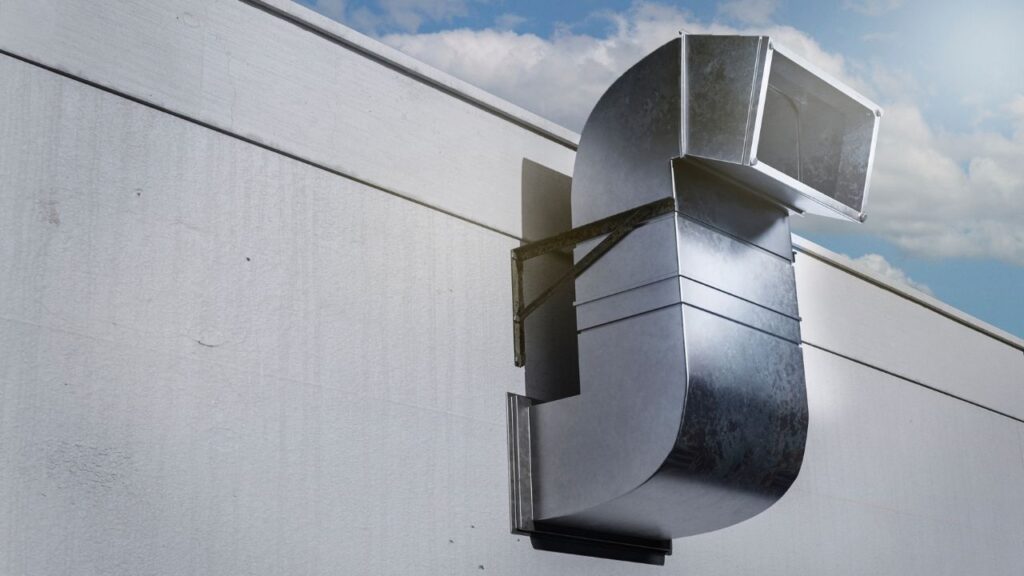
- Smart Home Integration: Let’s your HVAC system interact with other automated devices like smart speakers and lights for ultimate convenience.
Apart from these features, it’s also crucial to consider compatibility with renewable energy sources and regular maintenance agreements to prevent future breakdowns.
Don’t miss out on these extra benefits! Install an energy-efficient and capable HVAC system, backed by features that provide immense comfort in your home. Choosing the right HVAC system is like finding the perfect partner – it should keep you warm, cool, and comfortable, without any annoying noises or maintenance issues.
Tips to Keep in Mind While Choosing an HVAC System
Choosing the Right HVAC System for Your Home can be a challenging task that requires careful consideration. To assist you in this decision, we’ve compiled a few essential criteria to remember.
- Size matters – Choose an HVAC system that suits your home size
- Energy Efficiency – Consider energy-efficient models to save on electricity costs
- Installation and Maintenance Costs – Don’t forget to factor in installation and maintenance costs while taking out a contract
- Noise Level – Choose an HVAC system that operates at an acceptable sound level
- Air Quality – Check whether the system has built-in air purification systems and filters, especially if anyone in your family has allergies or asthma.
Remember, selecting the Right HVAC System for Your Home is not just about comfort; it also affects your household’s energy consumption and overall carbon footprint. However, it is crucial to understand that each household’s unique specifications determine which systems will work best for them.
When picking the right system, ensure high-quality insulation that prevents heat from entering your home unnecessarily. Additionally, homeowners must select models with HVAC-specific features such as zoning options automatically adjusting temperatures to match daily schedules.
To ensure optimized performance, make sure you regularly clean and maintain your HVAC system. This includes replacing air filters every three months and scheduling yearly professional cleaning services.
Trust me, you don’t want to end up with an HVAC system from a brand that sounds like it was made up by a toddler playing with alphabet magnets.
Choose a Reputable Brand
Opt for a Respected Manufacturer
When it comes to selecting an HVAC system, you want to ensure that you choose a manufacturer that has a reputation for quality equipment and top-notch customer service. An established brand can give you assurance that their systems have been tried, tested and are built to last.
Here are five points to keep in mind when looking for a reputable brand:
- Check the Reviews: You can always go online and read reviews of different brands before making your decision.
- Quality Equipment: Make sure the manufacturer uses high-quality materials and parts, which will prevent future breakdowns.
- Warranty: Look for manufacturers that provide excellent warranties so that you won’t have to bear any unexpected costs in case of any malfunctioning.
- Pricing: Compare prices across different brands and models but don’t compromise on quality for the sake of saving some money.
- Sustainability: Choose manufacturers who focus on sustainability by offering Energy Star certified models or those using eco-friendly refrigerants.
For additional information, consider speaking with an HVAC professional who can educate you more about reliability and other concerns.
Don’t miss out on the peace of mind provided by securing a quality HVAC system. Installation from a professional company will give you more than just reliable heating or cooling – it is also essential for the safety of your home and family.
Act now before regret sets in – consult with an experienced specialist today!
Before relying on online reviews to choose your HVAC system, remember that the internet can be both a blessing and a curse – kind of like air conditioning in a power outage.
Read Online Reviews
When it comes to selecting the right HVAC system for your home, there are several factors you need to consider. One of the most important steps in this process is to gather information through online reviews.
- Check out multiple review sites: Look for reviews on a variety of websites such as Google, Yelp, and Angie’s List. This will give you a broader picture of the company you’re considering.
- Scrutinize both positive and negative remarks: Don’t just focus on the high-rated or low-rated testimonials; read them all. This will allow you to make an informed decision based on what other people are saying.
- Consider the underlying issues described in each review: Pay attention to common complaints across different reviews as they may validate defects that aren’t mentioned anywhere else.
It is worth noting that some reviewers may not provide an accurate representation of their experience, so use these with caution. Another vital thing to remember is checking if the contractor has responded appropriately and professionally.
While online reviews can be very helpful in guiding your choice when selecting an HVAC system, relying solely on them isn’t wise. Reach out to friends or family members who have recently had a new system installed and ask about their experience.
As they say, necessity is the mother of invention, reading customer feedback helps business owners better understand how they can improve in terms of quality and customer satisfaction.
“Roses are red, violets are blue, getting multiple quotes for your HVAC system will save you money, it’s true!”
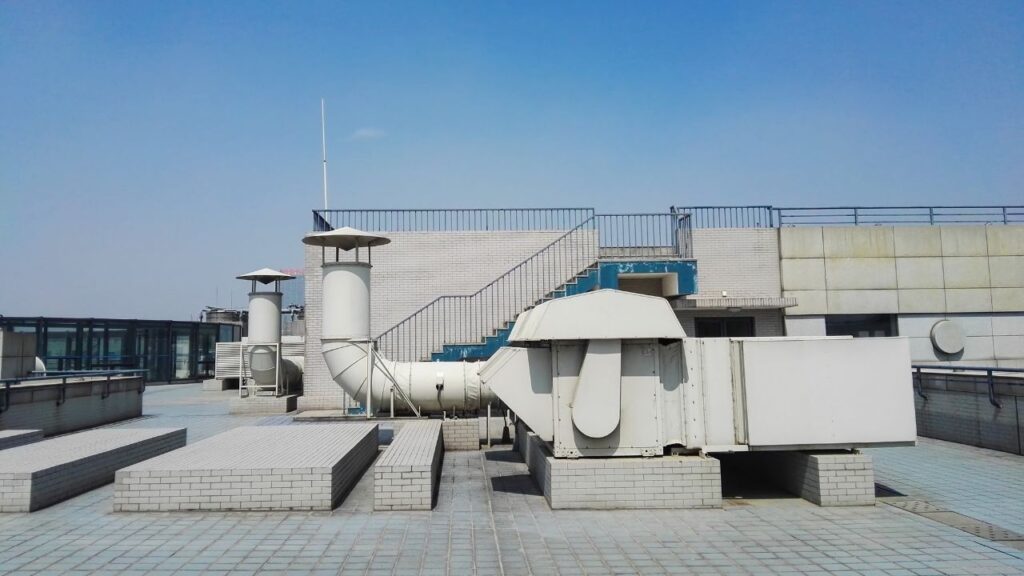
Get Multiple Quotes
To make an informed decision about the right HVAC system for your home, it is essential to explore different options. It is recommended to seek multiple proposals from HVAC contractors to compare features and pricing.
- When getting quotes, explain your requirements clearly.
- Compare features like energy efficiency and warranty provided.
- Choose a contractor with proven expertise in installing similar systems.
Apart from evaluating quotes, ensure that you get detailed information on installation timelines, maintenance requirements, and troubleshooting procedures. A reliable HVAC contractor should be able to provide additional insights on financing options, government rebates or tax credits that can help lower costs. Pro Tip: Do not rush into buying the cheapest option as it may lead to higher long-term costs due to frequent repairs and inefficient performance. Choose the one that offers the right balance between price and features suiting your specific needs. Don’t DIY your HVAC installation unless you want your home to be hotter than the sun…literally.
Hire a Professional Installer
When it comes to improving the overall comfort and air quality of your home, hiring a skilled HVAC professional is essential. With their expertise, they can help select the right system based on your specific needs and ensure proper installation. Here’s a guide that outlines steps for finding the perfect professional for your HVAC installation needs.
- Start with Research – begin by searching for local HVAC professionals in your area.
- Check Credentials – verify their licenses, insurance, and other qualifications.
- Ask for Referrals – look for referrals from family members or friends who have had a similar job done.
- Get Estimates – request detailed written estimates from multiple contractors.
- Read Reviews – check reviews online on various platforms before taking a final decision.
- Sign a Contract – sign the contract once you’re 100% satisfied with the contractor’s expertise and pricing.
While finding an experienced technician is important, it’s also crucial to keep safety in mind so make sure the contractor has experience dealing with your type of system.
It’s important to remember that even when working with professionals, accidents can happen throughout the process such as technical errors during installation, delaying projects or not providing proper services as promised. Therefore, double-checking credentials and getting guarantees is always recommended before hiring any technician.
Overall, taking all these steps mentioned above will save you from unexpected costs and problems while keeping you comfortable during scorching summers or shivering winters!
Remember, a warranty is like a relationship – you want it to last, but you also need to read the fine print.
Ask for Warranty
Warranties are an essential part of any purchase. When it comes to HVAC systems, a warranty is crucial in ensuring the longevity and quality of the product. Below are some things to keep in mind when asking for a warranty.
- Understand what the warranty covers:
- Check for the duration of the warranty:
- Look out for extended warranties:
- Inquire about repair and maintenance services:
- Read through the fine print:
Apart from these five considerations, it’s important to note that not all warranties are created equally. Therefore, it’s vital to weigh your options carefully and choose one that works best for you.
When discussing warranties with your HVAC dealer, request specifics like how long it will take to process claims and who will be responsible for labor costs. Getting clarity on details such as these will help you make an informed decision.
It can also be useful to ask about the manufacturer’s track record of honoring warranties. Researching customer reviews online can provide insight into their past experiences. By doing so, you can minimize any potential risks.
Choosing the right HVAC system for your home may not be sexy, but it’s the key to a comfortable life and avoiding hating your house more than your in-laws.
Conclusion
In order to ensure a comfortable living space, it is important to choose the right HVAC system for one’s home. This comprehensive buyer’s guide explores various factors that must be considered such as the size of the house, budget, and personal preferences. By analyzing and comparing different types of systems such as central air conditioning units and ductless mini-split systems, homeowners can make informed decisions about which product best suits their needs. Understanding energy efficiency ratings, maintenance requirements, and warranty options are also key components in making an investment that will last for years to come.
It is crucial to take into account additional factors when choosing an HVAC system for one’s home beyond simply price and size. These include compatibility with the existing wiring or ductwork in one’s home as well as any unique zoning or temperature control needs. Consulting with a professional installer or technician may also provide valuable insight into what options are available given specific circumstances.
For maximum efficiency and longevity of the chosen system, regular maintenance procedures are essential. This can include basic cleaning of filters and vents as well as more complex inspections performed by a certified professional. The importance of proper installation cannot be overstated either; any mistakes made during this process can lead to complications down the line that may ultimately affect performance or lifespan.
Ultimately, finding the ideal HVAC system requires careful consideration of all relevant factors including lifestyle needs, budgetary constraints, environmental impact, long-term performance expectations, warranty coverage options. Taking time to conduct thorough research before making a decision is vital in ensuring a comfortable living environment for years to come.
Frequently Asked Question
When choosing an HVAC system for your home, you should consider the size of your home, your budget, and your energy efficiency goals. Other factors to consider include the type of fuel source (natural gas, propane, or electricity), the brand of the system, and the level of noise the system produces.
The size of the HVAC system you need for your home depends on a variety of factors, including the size of your home, the climate in your area, and your energy efficiency goals. Your HVAC contractor will be able to provide a customized recommendation based on these factors.
SEER (Seasonal Energy Efficiency Ratio) is a measure of the energy efficiency of an HVAC system. A higher SEER rating indicates a more energy-efficient system, which can lead to lower energy bills over time. When choosing an HVAC system, it's important to consider the SEER rating in order to maximize energy efficiency and potential savings.
HVAC systems should be serviced at least once a year in order to ensure optimal performance and efficiency. Regular maintenance and inspections can also help prevent costly repairs and prolong the lifespan of the system.
There are several different types of HVAC systems, including central air conditioning systems, ductless mini-split systems, heat pumps, and furnace/boiler systems. The type of system that's right for your home depends on a variety of factors, including your budget, the size of your home, and your energy efficiency goals.
Yes, many HVAC companies offer financing options to help make the cost of a new system more affordable. Financing options may include low or no-interest loans, payment plans, and other options.
Comprehensive Trade-Specific Estimates
At Estimate Florida Consulting, we offer detailed cost estimates across all major trades, ensuring no part of your project is overlooked. From the foundation to the finishing touches, our trade-specific estimates provide you with a complete and accurate breakdown of costs for any type of construction project.
Our Simple Process to Get Your Estimate
Upload Plans
Submit your project plans, blueprints, or relevant documents through our online form or via email.
Receive Quotation
We’ll review your project details and send you a quote based on your scope and requirements.
Confirmation
Confirm the details and finalize any adjustments to ensure the estimate meets your project needs.
Get Estimate
Receive your detailed, trade-specific estimate within 1-2 business days, ready for your project execution.



Our Clients & Partners
We pride ourselves on building strong, lasting relationships with our clients and partners across the construction industry.
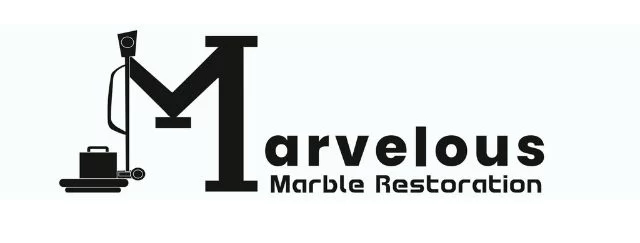


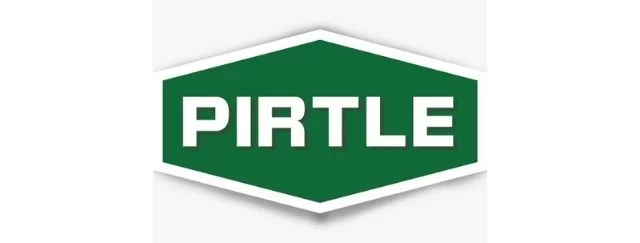


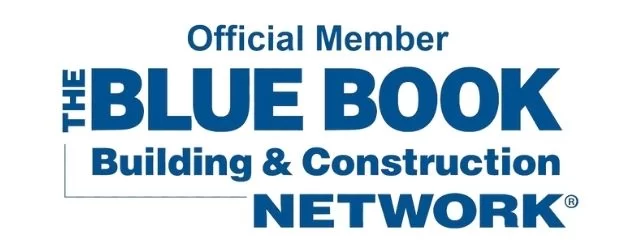




What Our Clients Say?
We take pride in delivering accurate, timely, and reliable estimates that help contractors and builders win more projects. Our clients consistently praise our attention to detail, fast turnaround times, and the positive impact our estimates have on their businesses.
Estimate Florida Consulting has helped us win more bids with their fast and accurate estimates. We trust them for every project!




